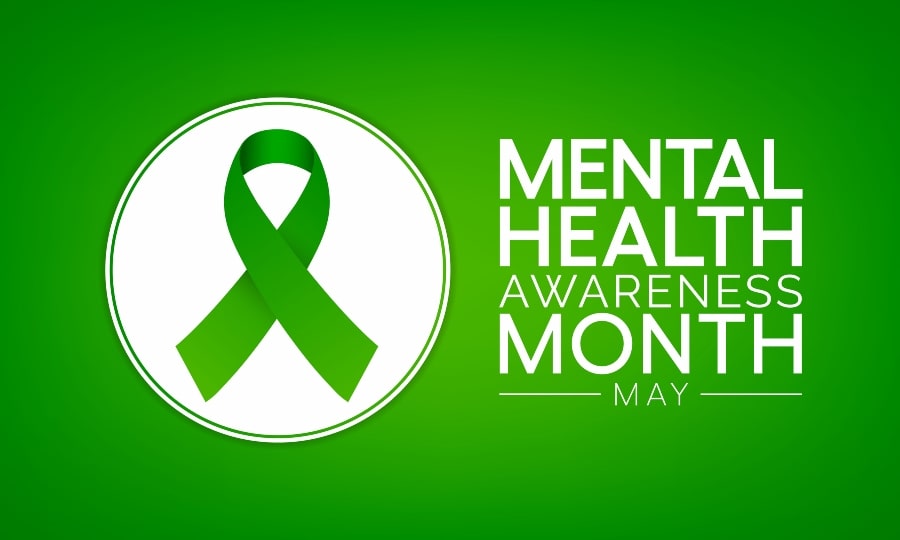
Engage in Mental Health Awareness Month
The Calli InstituteMay is Mental Health Awareness Month, a time to shine a light on overall well-being and look for ways to initiate change related to how others view mental health. The more people know, the more they understand. And The Calli Institute hopes this month brings with it a host of opportunities to raise awareness. Keep reading to discover tips for personal growth to help you engage in Mental Health Awareness Month.
Mental Health at a Glance
Mental health encompasses overall well-being. Our emotional, intellectual, and social wellness affects feelings, thoughts, and actions; the ways in which we relate to others; and how we react to adversity. So many of the things that make us who we are can be directly linked to mental health.
The term mental health is often transposed with mental illness, perhaps because they sometimes have a cause-effect relationship. Mental illness is a frequently stigmatized condition that involves changes in mental health.
According to the Centers for Disease Control and Prevention, more than half of Americans will be diagnosed with a mental illness or disorder in their lifetime. While mental illness is one of the most common health conditions in the country, people are reluctant to talk about it — and its relation to mental health.
But we want to help change that.
Brush Up on Common Issues
One of the things you can do to engage in Mental Health Awareness Month is to learn about some common mental health issues. This can help you possibly recognize signs in yourself or others, promote conversations about mental health, and help advocate for loved ones working through such issues.
About one-third of collective mental health diagnoses in the U.S. are from:
- Depression — A mood disorder, often characterized by persistent sadness or lack of interest in once-enjoyable things, that affects how someone feels, thinks, or acts.
- Anxiety disorders — These episodes often interfere with daily life and can include panic attacks, obsessive-compulsive disorder, and social anxiety. According to the National Alliance on Mental Illness (NAMI), more than 40 million adults are estimated to have some type of anxiety disorder.
- Post-traumatic stress disorder — This condition is triggered by experiencing or witnessing a traumatic event, such as war, assault, or a natural disaster.
NAMI also estimates that 1 in 5 adults in the U.S. are living with a mental health issue, so they’re not uncommon. The key is to recognize the issues and normalize open discussions to help create change.
Check In with Yourself
Another way to engage in Mental Health Awareness Month is to assess your own wellness. Self-care promotes physical and mental health. Are you taking care of yourself? Now is a great time to check in and make sure you’re practicing self-care.
Exercise. Be sure to get up, get out, and get moving. Even something simple like a brisk walk during your lunch break can benefit you physically and mentally. Exercise helps to boost your mood, build self-esteem, and reduce stress. It can also help you sleep better and more soundly.
Sleep. Getting enough sleep helps you feel energized and ready for each day. Reduce or eliminate screen time at night and try to stick to a sleep schedule to acclimate your body.
Healthier eating. What you put into your body determines how you feel. Try to maintain a regular, balanced diet. And drink plenty of water to help boost serotonin production.
Positive thoughts. Thinking positively can help manifest good things. Challenge yourself to think good thoughts.
Relax. Set aside regular time for meditation or deep breathing to help with relaxation.
Be a Support System
Mental health issues aren’t always obvious. That’s why learning more about them can help you recognize when others might be facing challenges. You can be a support system for family and friends by:
- Being open and checking in on how they’re doing or feeling
- Letting them know you’re concerned and want to help
- Listening without judgment
- Helping them find resources
- Keeping your mental health in check while looking out for others
Talk to a Professional
NAMI reports that on average, it takes 11 years for someone with signs of a mental health issue to get treatment. Recognizing those signs and reaching out for help early can help lessen the effects of an issue and get you on track to recapturing balance.
If you’re facing any type of mental health adversity, even for an issue that may seem insignificant, it’s okay to ask for help. That’s what Mental Health Awareness Month is all about.
Talking with a therapist or counselor can help you focus on and understand issues while learning to develop strategies for overcoming personal challenges. They can help you learn and implement approaches to wellness that allow you to cope with concerns, determine goals for personal fulfilment, and increase overall well-being.
Calli is Here to Help
These are just some of the things you can do to engage in Mental Health Awareness Month. The Calli Institute can offer additional tips for personal growth or other ways to raise awareness. And if you’re struggling with mental health issues, we are here to listen. Our team can work with you to develop a plan for your individual wellness goals.
